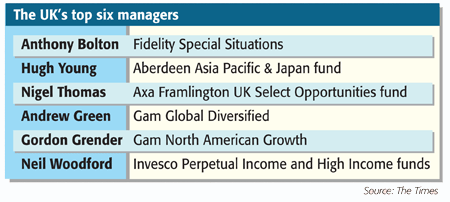
Why pay a fund manager more to look after your cash when an index tracker does it better and costs less? That’s what legendary investor Warren Buffett asked his shareholders at the annual Berkshire Hathaway meeting two weeks ago. “A very low-cost index is going to beat a majority of the amateur-managed money or professionally-managed money,” said Buffett, said to be worth $52bn. “The gross performance may be reasonably decent, but the fees will eat up a significant percentage of the returns.” Research from Bestinvest certainly supports his views. The independent financial adviser has found that less than half of all active funds in the UK have beaten the FTSE All-Share over the past five, ten and 15 years. And over 20 years, just six British managers have beaten their benchmark index.
So why the underperformance? High annual fees don’t help. As Conrad de Aenlle says in the International Herald Tribune: “The research that goes into buying stocks – visiting companies, talking to their suppliers and customers, poring over earnings statements and balance sheets – does not come cheap.” Index-tracker funds can charge less as there are no fund managers to pay. Cheap trackers include the FTSE All-Share Tracker from Fidelity, which charges 0.3%, and Legal & General UK Index, which charges 0.52%.
But if you really want someone to manage your money, then who are Britain’s Buffetts, asks Philip Scott in The Times? Anthony Bolton of Fidelity Special Situations is an obvious choice, returning an average 20.6% a year since 1979. But he’s stepping down at the end of 2007, which puts the spotlight on managers like Nigel Thomas of Axa Framlington UK Select Opportunities fund and Neil Woodford at Invesco Perpetual. Thomas has returned an average 19.2% a year over the last 20 years, against 10.1% for the All-Share index. His secret is “trend-spotting” – a key recent pick for him was sugar producer Tate & Lyle, which also makes ethanol and has benefited from the biofuel boom. Woodford, meanwhile, “goes against the grain, shunning tech stocks in the 1990s, for example”. His contrarian stance has worked – he has returned 15.8% a year for the past
18 years. For a full list of the six top managers and their performances, see the chart below.